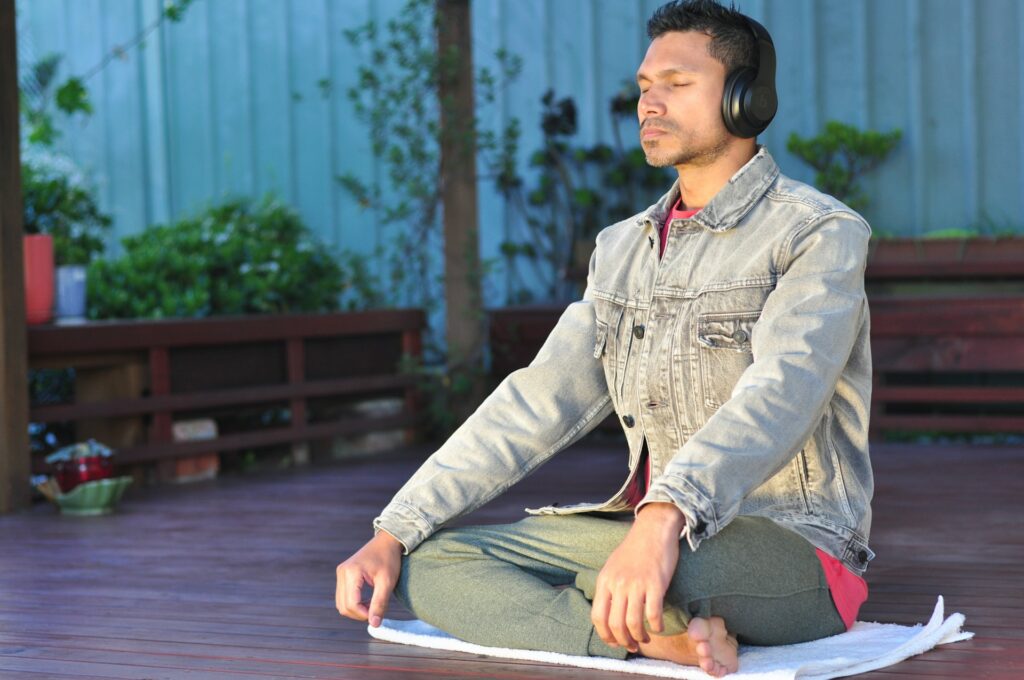Burnout doesn’t disappear just because you’ve acknowledged it—and while rest is crucial, the truth is, recovery is rarely linear.

Some days you might feel okay, and other days you’ll wonder if you’re back at square one. The key isn’t to bounce back quickly, but to give yourself space to heal without piling on more pressure. Rushing only recreates the same loop that wore you down in the first place. These small, steady changes can help you reconnect with your energy at your own pace, without treating yourself like a machine in need of a recharge timer.
1. Stop expecting yourself to feel better overnight.

One of the hardest parts of healing from burnout is realising it won’t vanish just because you’re finally resting. Your brain might be calmer, but your body could still feel flat. That doesn’t mean you’re doing it wrong—it just means you need time. Burnout seeps into your nervous system, and that kind of depletion doesn’t reset in a weekend.
Try not to turn healing into another to-do list. There’s no schedule to stick to, and no shame in needing longer than you expected. Give yourself permission to move slowly, without measuring every day for progress.
2. Redefine what rest actually means for you.

Not all rest looks like lying on the sofa in silence. Sometimes it’s a walk at your own pace, sitting outside with a drink, or doing a hobby that doesn’t ask much from you. Rest should feel like relief, not another task you’re supposed to be “doing right.” Explore different kinds of rest without judging what works or doesn’t. The point isn’t to be still, it’s to feel nourished. What makes you feel safe, soothed, or gently recharged is your kind of rest, no matter how it looks to someone else.
3. Choose one non-negotiable act of care each day.

When your energy’s low, even simple tasks can feel like a mountain. Instead of trying to do everything, pick one small, kind thing each day that helps you feel more like yourself. It could be brushing your teeth, drinking water, changing into fresh clothes, or stepping outside.
These little habits help rebuild a sense of routine and self-trust. You’re reminding your body and brain that you still matter, even when you’re running on fumes. Tiny consistent care—without pressure—goes further than grand gestures once a week.
4. Let yourself say no without explanation.

Part of burnout recovery is unlearning the belief that your worth comes from being endlessly available. Saying no doesn’t make you selfish—it makes you honest. You don’t owe everyone your time, especially when you’re barely getting through the day. Start with small boundaries and build from there. You don’t have to explain every decision or soften every refusal. Protecting your energy might feel unfamiliar at first, but it’s one of the most healing choices you can make.
5. Find joy in low-effort pleasure.

When your energy’s flat, even fun can feel exhausting. But that doesn’t mean you can’t feel a spark again. The trick is to look for low-effort joys—the things that don’t ask much from you, but still offer a lift. A nostalgic TV show, a cosy jumper, a silly video, a hot drink at the right time. You don’t have to chase big passions or force creativity yet. Just gently reintroduce small delights, without turning them into “productivity hacks.” Let pleasure be pointless, and let that be enough for now.
6. Give your body cues of safety and rhythm.

Burnout often leaves your nervous system stuck in overdrive, even when you’re trying to relax. Simple habits like eating at regular times, gentle stretching, or dimming the lights in the evening can quietly signal to your body that it’s okay to settle.
It’s not about controlling every detail, but about creating a rhythm that feels calm and steady. These cues help your system realise it doesn’t have to brace for impact all day. Stability might feel boring, but it’s what your burnout recovery craves.
7. Stop watching everyone else’s recovery routines.

It’s easy to scroll through other people’s healing journeys and start comparing yours. But burnout doesn’t look the same on everyone, and what works for someone else might exhaust you. If someone’s version of self-care feels like a performance, you don’t have to copy it. Your energy is yours to protect, and your pace is personal. Let go of the idea that there’s a perfect way to bounce back. Recovery is real even if it’s quiet, slow, or messy.
8. Make space for your feelings, not just your tasks.

Burnout recovery isn’t just physical. There’s often anger, grief, shame, or even confusion tangled up in it. You might feel resentful that you reached this point at all, or frustrated that rest doesn’t feel the way you imagined it would. Let those emotions surface without rushing to fix them. Write them down, talk to someone safe, or just acknowledge them. Emotional honesty is part of healing—it frees up the energy you were using to push everything down.
9. Rebuild trust with your body through small agreements.

If burnout made you ignore your body’s signals for too long, you might struggle to trust yourself again. Start with small agreements you know you can keep. “I’ll go to bed by 10 tonight.” “I’ll take a proper lunch break.” “I’ll walk for five minutes if it feels right.” Each time you follow through, your nervous system feels a little safer—and you begin to rebuild that inner trust. These aren’t rules—they’re gentle promises that remind your body you’re listening now.
10. Give yourself permission to enjoy calm without guilt.

When you’ve lived in a go-go-go mindset, rest can feel like slacking off. Even peace can make you anxious, because you’ve trained yourself to equate calm with being unproductive. That mindset is part of what led to burnout in the first place. Remind yourself that calm is not the enemy—it’s a reset. You don’t have to “earn” rest with exhaustion. You’re allowed to feel okay without doing something remarkable first. Quiet is not a failure. It’s where your strength can regrow.


